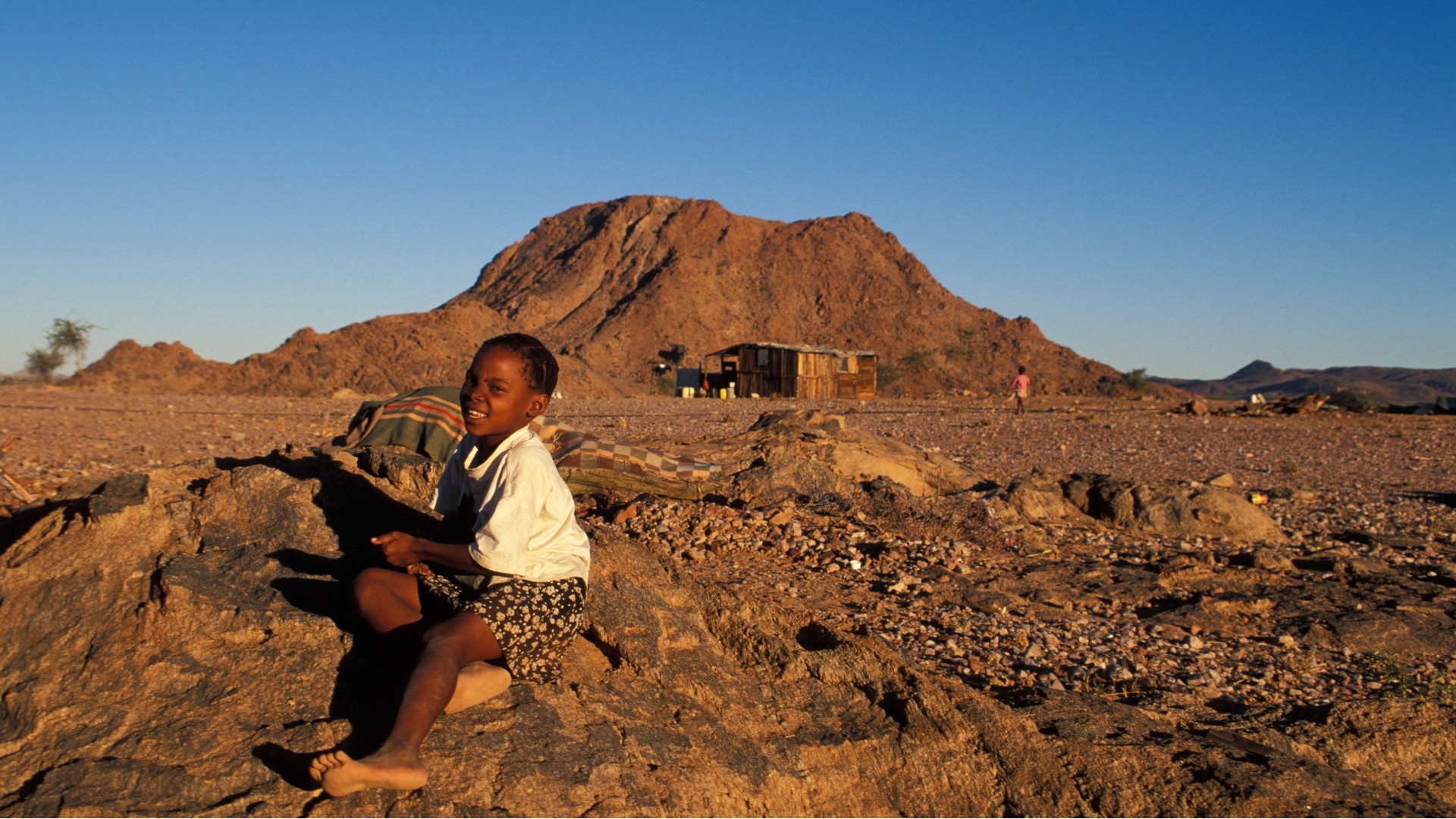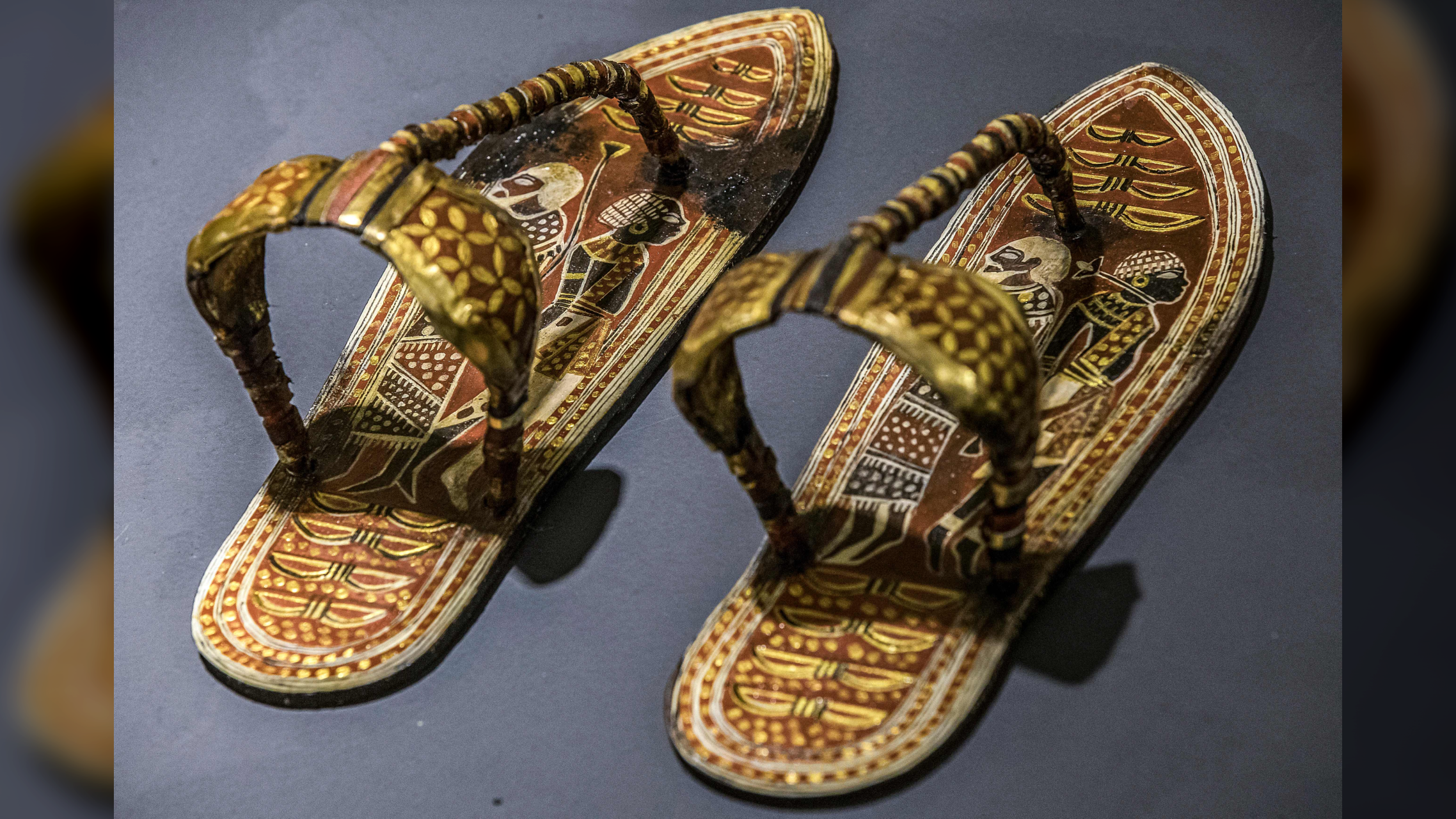Modern humans arose after 2 distinct groups in Africa mated over tens of thousands of years
Modern humans may descend from two or more genetically distinct streams that split but continued to occasionally mix over time in Africa.

Get the world’s most fascinating discoveries delivered straight to your inbox.
You are now subscribed
Your newsletter sign-up was successful
Want to add more newsletters?

Delivered Daily
Daily Newsletter
Sign up for the latest discoveries, groundbreaking research and fascinating breakthroughs that impact you and the wider world direct to your inbox.

Once a week
Life's Little Mysteries
Feed your curiosity with an exclusive mystery every week, solved with science and delivered direct to your inbox before it's seen anywhere else.

Once a week
How It Works
Sign up to our free science & technology newsletter for your weekly fix of fascinating articles, quick quizzes, amazing images, and more

Delivered daily
Space.com Newsletter
Breaking space news, the latest updates on rocket launches, skywatching events and more!

Once a month
Watch This Space
Sign up to our monthly entertainment newsletter to keep up with all our coverage of the latest sci-fi and space movies, tv shows, games and books.

Once a week
Night Sky This Week
Discover this week's must-see night sky events, moon phases, and stunning astrophotos. Sign up for our skywatching newsletter and explore the universe with us!
Join the club
Get full access to premium articles, exclusive features and a growing list of member rewards.
Modern humans arose after a complex history of intermingling between ancestors on at least two different but closely related evolutionary branches, a new study suggests.
While these genetically distinct branches had divided, people on each branch continued to occasionally mix over time, the researchers found.
The new results upend previous suggestions that our species may have interbred with extinct relatives in Africa who had significantly different anatomy from us. What's more, it jettisons the idea that humans evolved from a single river branching off from our closest relatives.
"It is exciting that people are starting to model these more complex models and that datasets are becoming available to do this," Carina Schlebusch, a population geneticist at Uppsala University in Sweden who did not take part in this research, told Live Science.
Evolving over time
Our species, Homo sapiens, arose in Africa more than 300,000 years ago. The first waves of modern humans began leaving Africa at least 194,000 years ago. Outside the continent, modern humans sometimes interbred with their now-extinct relatives, such as Neanderthals and Denisovans, whose ancestors departed Africa long before modern humans did.
These recent discoveries raised the possibility that our species may have also interbred with "ghost lineages" within Africa — ancient relatives of modern humans not currently known of in the fossil record. Some researchers suggested that H. sapiens may have even interbred with ancient species significantly anatomically different from modern humans, such as Homo naledi, one of the most recently discovered extinct human species.
To shed light on this possibility, scientists analyzed modern human genomes from southern, eastern and western Africa. The study included newly sequenced genomes from 44 members of a southern African group known as the Nama. The Nama are members of the Khoe-San people, who speak a language based on clicking sounds and possess exceptional levels of genetic variants distinct from other modern humans, suggesting their ancestors may have split from those of other modern humans long ago.
Get the world’s most fascinating discoveries delivered straight to your inbox.
The team found that modern humans in Africa may descend from two or more genetically distinct streams that divided but whose individuals continued to sporadically mate over time.
The earliest signs the researchers could identify of modern humans diverging into multiple groups in Africa happened about 120,000 to 135,000 years ago, with one population splitting off to become the ancestors of the Nama. Still, before that split, the genetic variation seen in H. sapiens suggests our species consisted of two or more genetically distinct human populations that had been interbreeding for hundreds of thousands of years.
The differences between these genetically distinct groups would likely have emerged because "Africa is a large continent," study co-senior author Simon Gravel, a population geneticist at McGill University in Montreal, told Live Science. Distance, geographical obstacles and social barriers would likely have helped keep these groups physically separated for the most part, and they would have diverged genetically over time, he explained.
In addition, "there were also many changes in climate," study co-author Tim Weaver, a professor in the Department of Anthropology at the University of California, Davis, told Live Science. The way in which rainfall or temperature levels may have risen and fallen over time "would have reduced or increased geographic barriers to human migration."
However, the researchers stressed the differences between these ancient groups would have been "almost as low as seen between contemporary human populations," Gravel said.
These new findings suggest modern humans likely didn't interbreed with H. naledi or other significantly anatomically different groups — at least, not in any way they could detect in contemporary humans. "It is interesting that the new study does not find support for such interbreeding, since "we know from paleoanthropology that our likely ancestors coexisted with anatomically archaic looking forms, such as the populations represented by the Kabwe skull and H. naledi," Schlebusch said.
Instead, the new model of interbreeding with relatively anatomically similar groups may better explain the genetic variation seen in modern humans. The researchers suggested about 1 to 4% of genetic differences in modern human populations may come from this prehistoric intermingling in Africa.
In the future, ancient DNA recovered from fossils in Africa may hopefully provide direct ways to test this new model, said Omer Gokcumen, an anthropological genomicist at the University at Buffalo in New York, who did not take part in this research. "I am excited to see this discussion evolving — no pun intended — in the near future when more ancient genomes become available," Gokcumen told Live Science.
The scientists detailed their findings online Wednesday (May 17) in the journal Nature.

 Live Science Plus
Live Science Plus










